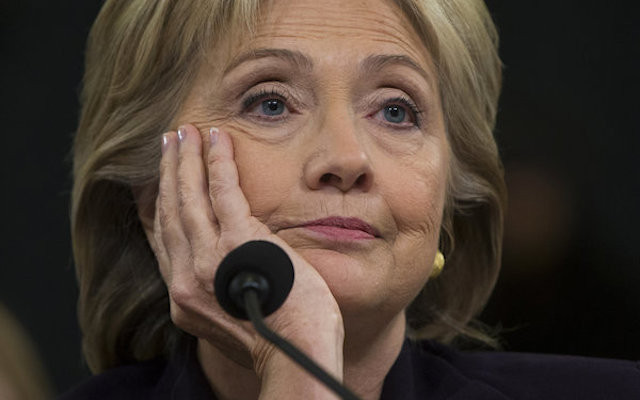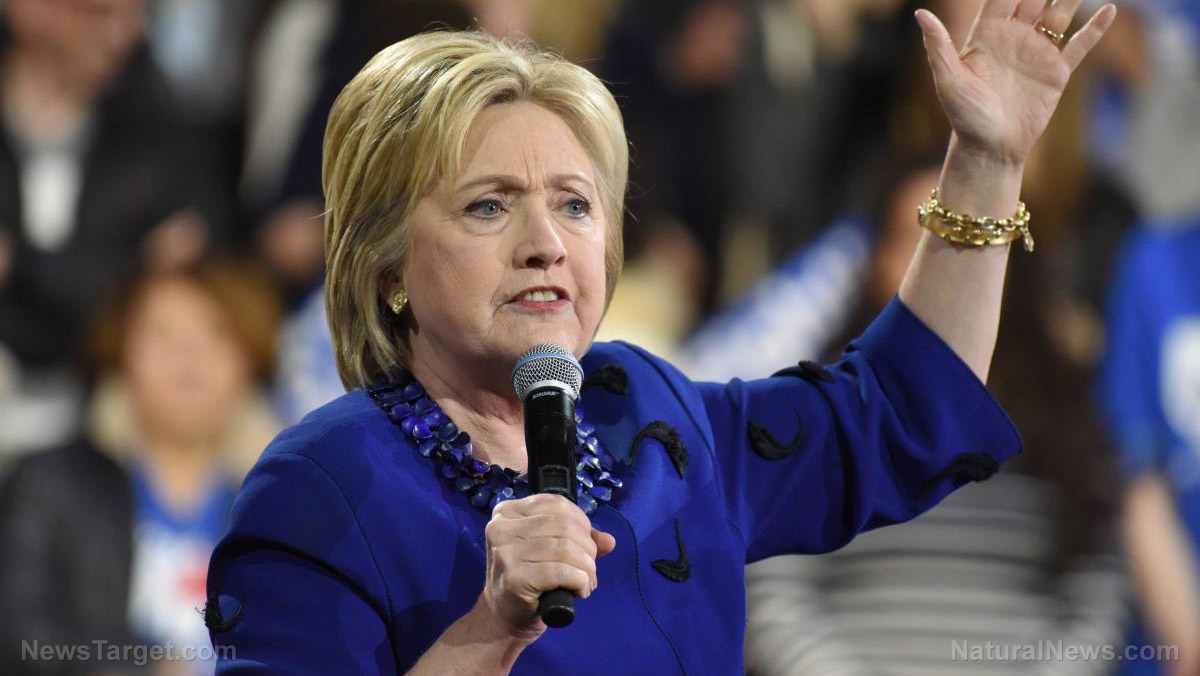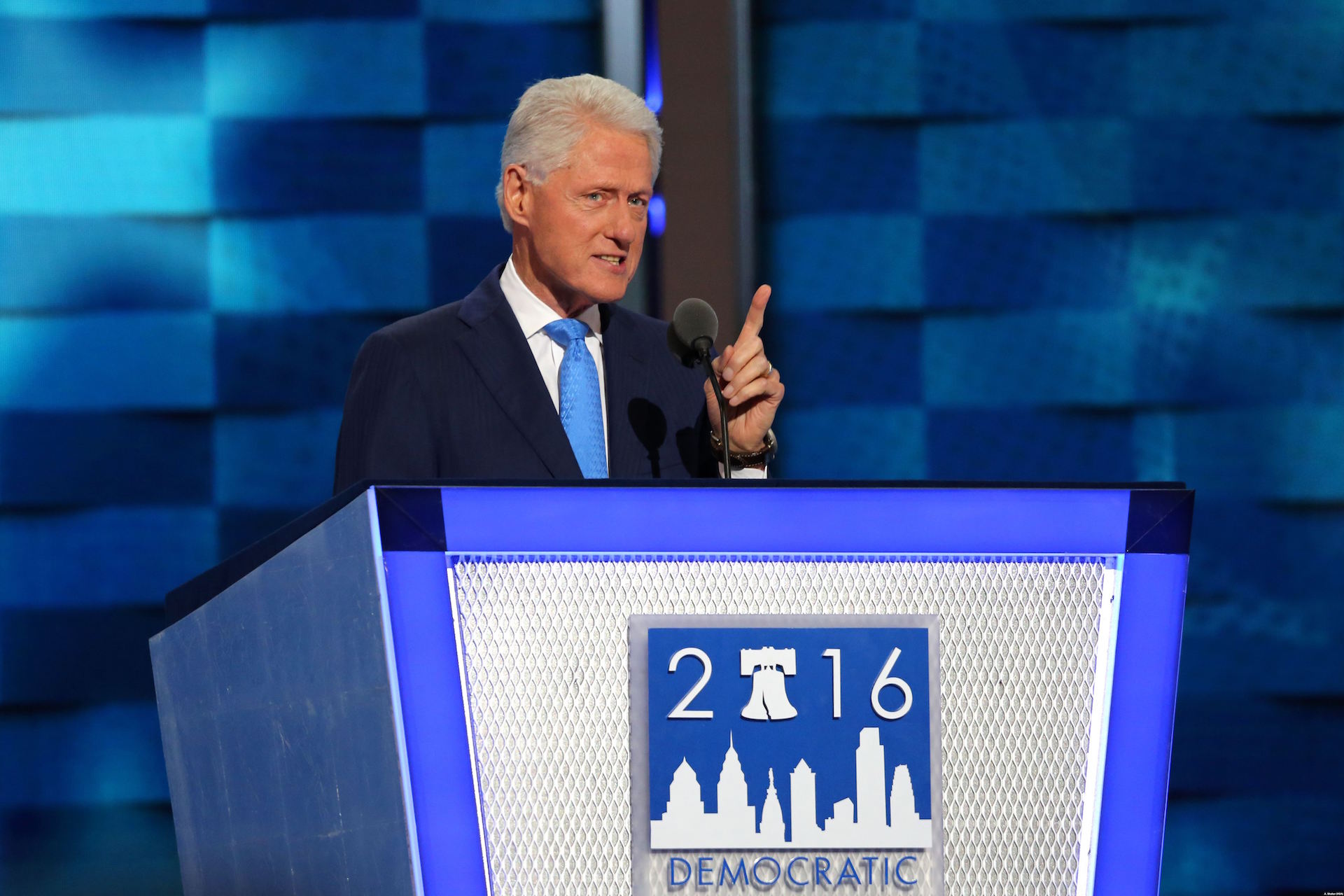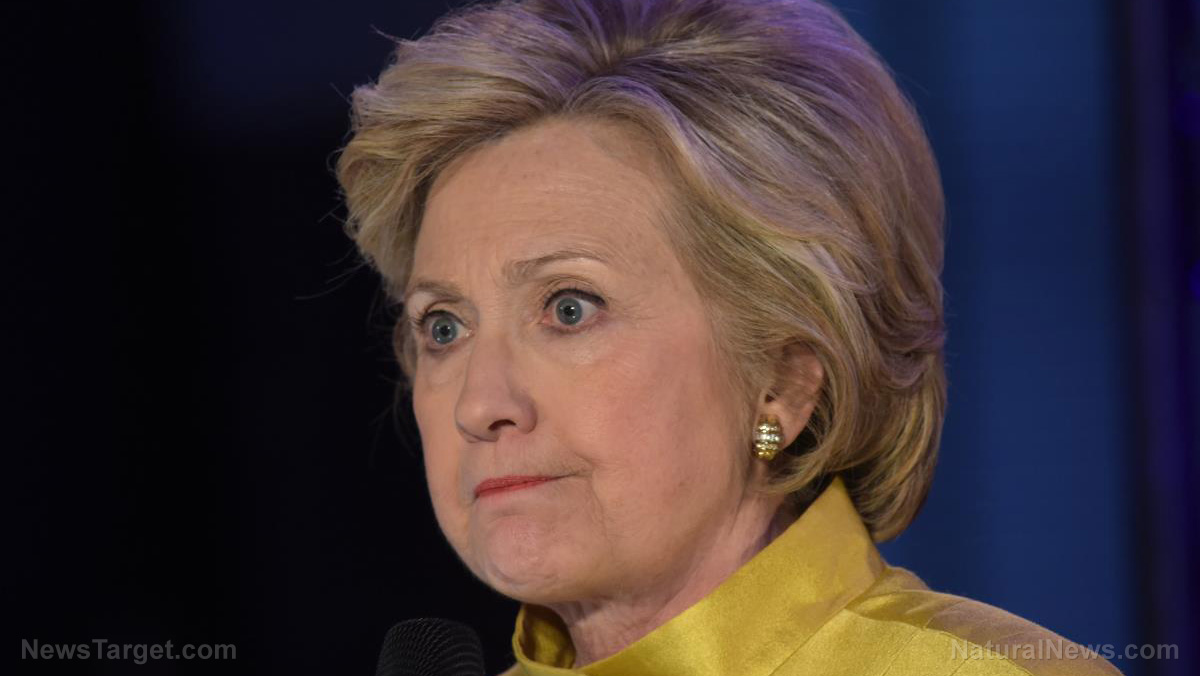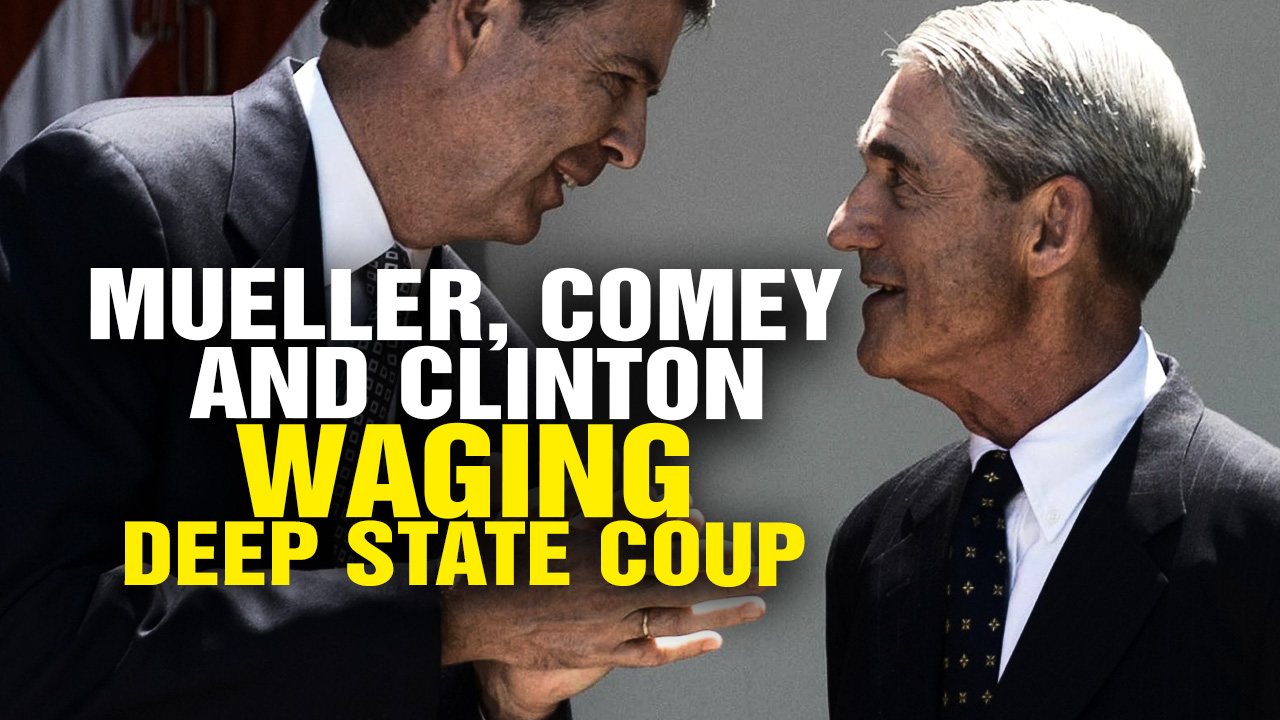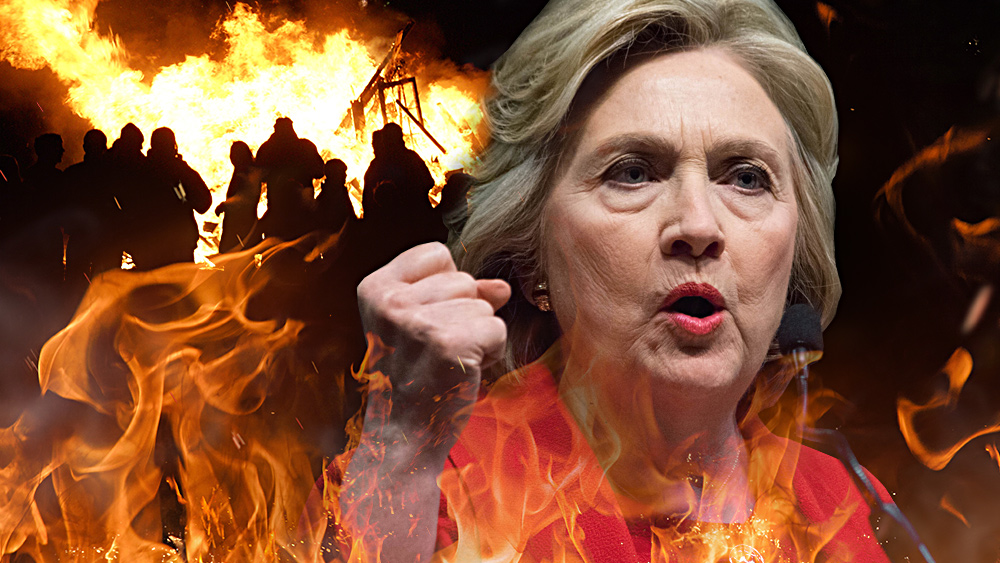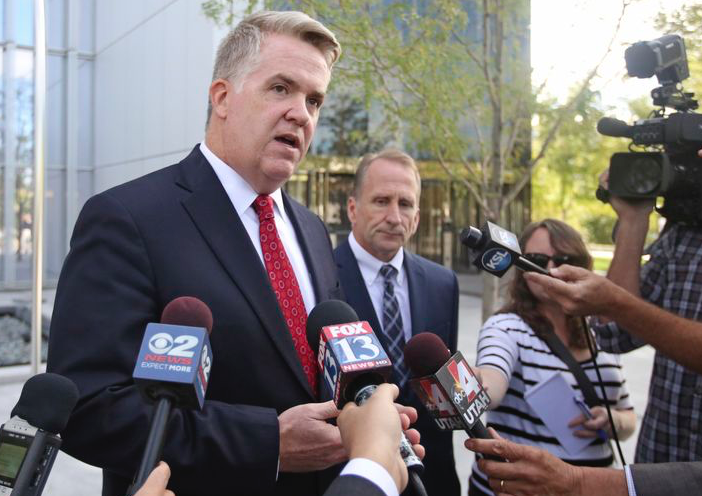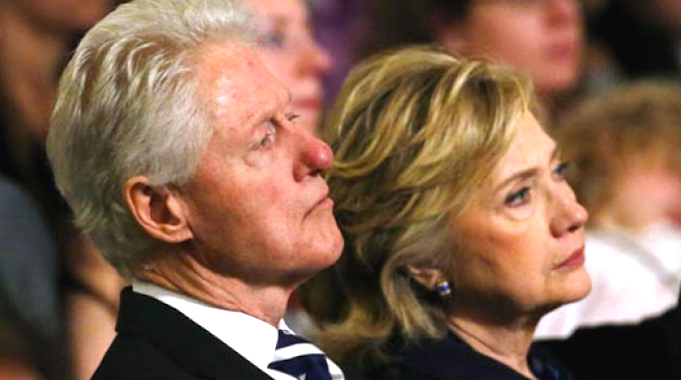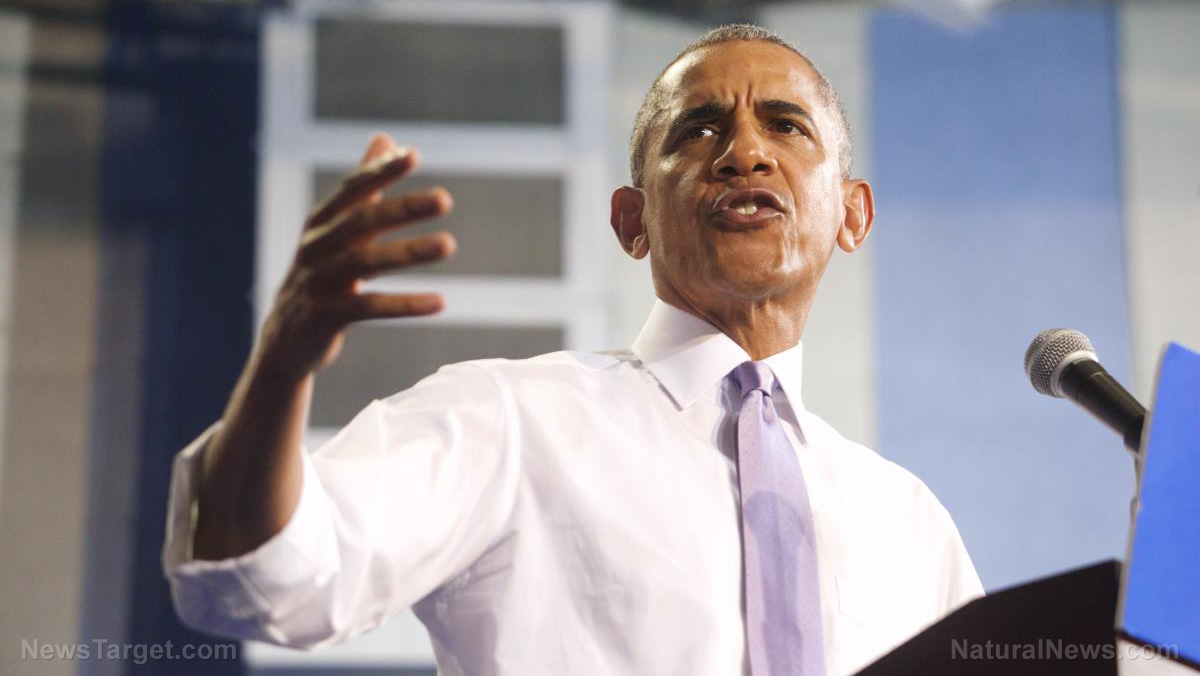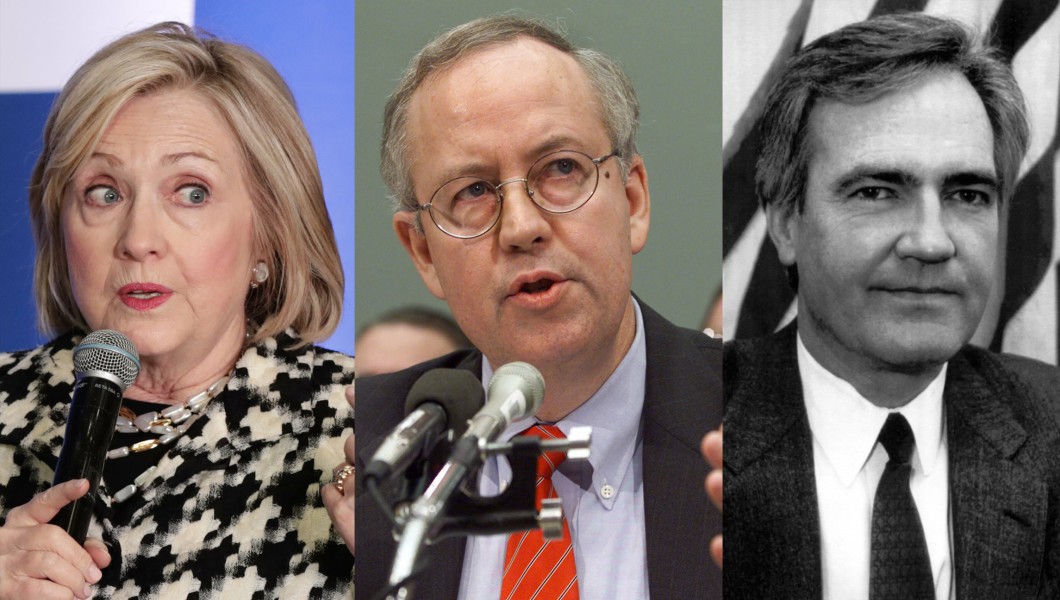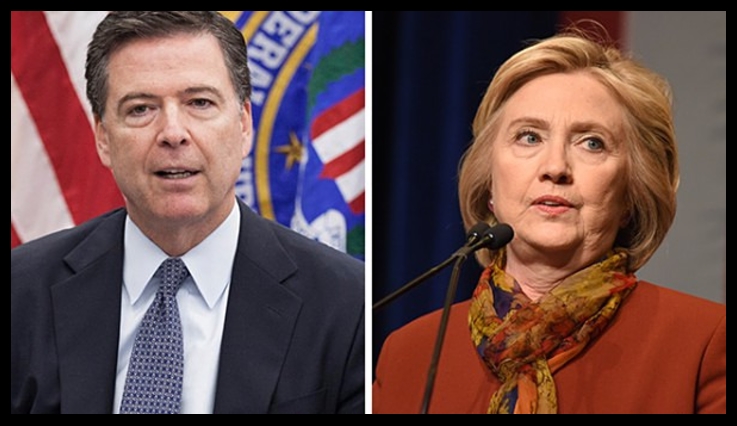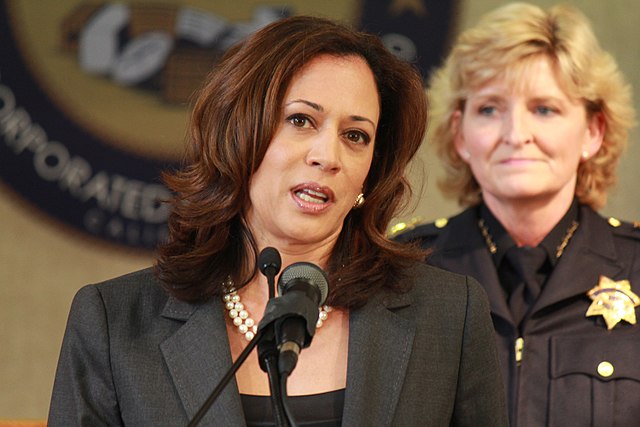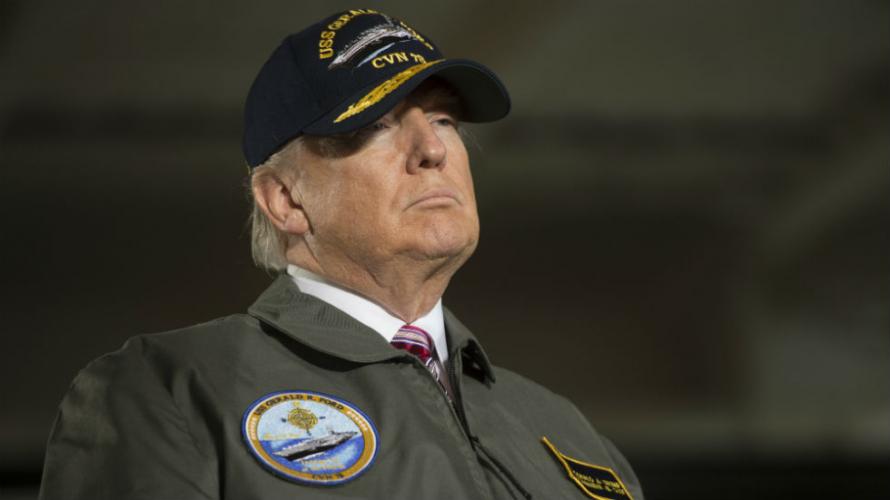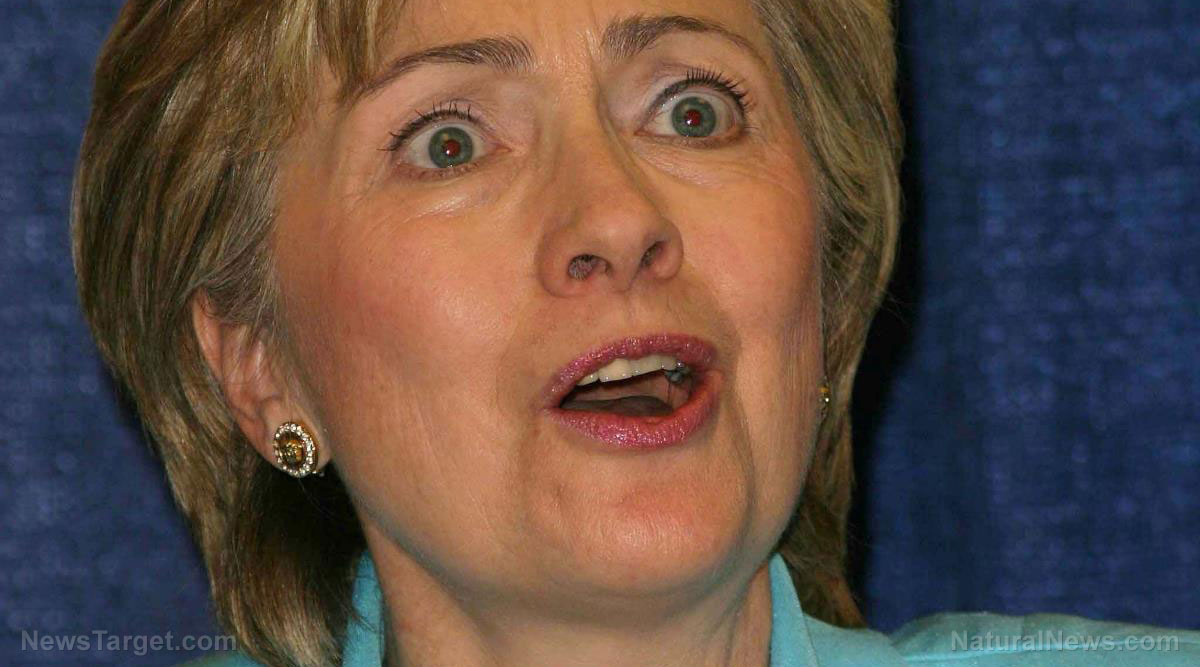Hillary Clinton’s Massive Gun Control Plan
06/01/2016 / By clintonnews

In October, Democratic presidential candidate Hillary Clinton announced her gun control plan, promising that if she’s elected, she’ll ban some guns and impose other restrictive gun control laws, in some cases without Congress’ approval. Clinton’s plan would prohibit Americans from selling a “significant” number of privately owned guns without a license, prevent gun purchases by indefinitely delaying purchasers’ background checks, repeal the federal law that prevents gun control supporters from pursuing groundless lawsuits designed to stop gun sales by driving firearm manufacturers and dealers out of business, ban all semi-automatic shotguns and detachable-magazine semi-automatic rifles (and some other categories of guns), ban the possession of firearms by people in troubled dating relationships without due process of law, and empower the Bureau of Alcohol, Tobacco, Firearms and Explosives to revoke the licenses of dealers for unintentional recordkeeping errors.
(Article by NRA ILA, republished from http://dailycaller.com/2015/10/16/clinton-announces-massive-gun-control-plan/)
Clinton’s announcement follows her statement equating gun control opponents with terrorists, her statement that the NRA has a “pernicious, corrupting influence,” and her statement to the effect that the Second Amendment doesn’t protect an individual right to keep and bear arms. Clinton thereafter continued her rhetorical attack, comparing the NRA to “the Iranians or the communists,” the latter passing strange, given her early political background.
At least one reporter suggested that Clinton is coming out strongly against guns to get votes from the most liberal-left members of her party, many of whom are currently supporting her primary opponent for the Democrat nomination, self-proclaimed socialist Sen. Bernie Sanders (D-Vt.). Also, Clinton may be trying to remind the same voters of her extreme position on guns because Vice-President Joe Biden, whose anti-gun record is nearly as extreme, may throw his hat in the ring as well.
However, Clinton has advocated radical gun control—including gun bans, gun owner licensing and prohibitive taxes on guns—since she and her husband occupied the White House in the 1990s.
Clinton’s current anti-gun plan is no less radical. Essentially, it would prohibit Americans from selling a “significant” number of privately owned guns without a license, prevent gun purchases by indefinitely delaying purchasers’ background checks, repeal the federal law that prevents gun control supporters from pursuing groundless lawsuits designed to stop gun sales by driving firearm manufacturers and dealers out of business, ban all semi-automatic shotguns and detachable-magazine semi-automatic rifles (and some other categories of guns), ban the possession of firearms by people in troubled dating relationships without due process of law, and empower the Bureau of Alcohol, Tobacco, Firearms and Explosives to revoke the licenses of dealers for unintentional recordkeeping errors.
Background Checks
Adopting one of anti-gun activist groups’ contemporary narratives, Clinton says background checks “work,” even though the vast majority of mass shooting perpetrators pass background checks to acquire their guns,1 and many, perhaps most, other criminals who use guns obtain them by theft, from the black market, or—as Clinton herself admits—through straw purchasers. Straw purchasers are people who can pass background checks, who buy guns for criminals who can’t pass the checks, and who are therefore the Achilles Heel of any background check apparatus, rendering “expansions” and “improvements to the system largely or entirely pointless. The Bureau of Alcohol, Tobacco, Firearms and Explosives……
Clinton points instead to the fact that the National Instant Criminal Background Check System has denied purchases to a large number of people since its inception in 1998. However, she fails to say that relatively few of those who are denied are dangerous enough to warrant prosecution, and that a failed background check doesn’t stop a dangerous person from obtaining a firearm by other means, and that many people are denied incorrectly and ultimately have their denials reversed.
Prohibiting a Person From Selling a “Significant” Number of Personally Owned Guns
Clinton says that she would use presidential executive authority to prohibit a person from selling a “significant” number of guns without being federally licensed as a firearm dealer and, therefore. Clinton didn’t say what number of guns she considers “significant,” but in 2013 the Obama administration at least considered whether it were possible to arbitrarily require that a person who sells more than 50 guns per year possess a dealer’s license, and in the early 1990s gun control supporters supported legislation to require a person who owned more than 20 guns to obtain an “arsenal license” at a cost of $100 a year.
However, such details are beside the point. No president has the authority that Obama wondered about and that Clinton still imagines. Federal law defines who is and isn’t required to be licensed and to run background checks. The Gun Control Act of 1968 requires a person to be licensed as a firearm dealer in order to be “engaged in the business” of selling firearms. The Firearms Owners Protection Act of 1986 clarifies that “engaged in the business” refers to “a person who devotes time, attention, and labor to dealing in firearms as a regular course of trade or business with the principal objective of livelihood and profit through the repetitive purchase and resale of firearms,” but not “a person who makes occasional sales, exchanges, or purchases of firearms for the enhancement of a personal collection or for a hobby, or who sells all or part of his personal collection of firearms.”
The So-Called “Gun Show Loophole,” “Internet Sales Loophole,” and “Charleston Loophole”
As even the most casual observer by now realizes, gun control supporters use the term “loophole” almost any time a federal gun control law—even one that gun control supporters wrote and voted for—doesn’t suppress gun acquisition as much as they would like.
With respect to gun shows, there is no “loophole,” however, because, under federal law, a firearm dealer is required to conduct a background check for every firearm sale, regardless of where it takes place, and a person who is not a dealer is not required to conduct a background check, regardless of where a sale takes place. Furthermore, gun control supporters’ rhetorical emphasis on gun shows is misleading to the point of dishonesty, given that relatively few criminals obtain guns at shows. Federal surveys have repeatedly shown (Page 1 and page 13, Table 14) that less than one percent of state prison inmates imprisoned because of gun crimes obtained their guns from gun shows, from either dealers or private individuals.
With respect to the Internet, there is no “loophole,” because of existing federal laws covering sales of firearms. Federal law prohibits a person from selling or shipping a firearm to a person who lives in another state. It prohibits a person from acquiring a firearm from a person who lives in another state, unless the transaction goes through a dealer and a background check is performed on the purchaser. And it prohibits transferring a firearm to anyone, knowing or having reasonable cause to believe that the person is prohibited from possessing a firearm, or that the firearm is being acquired for use in crime. Maybe Clinton’s personal email server allows for a gun to be electronically zapped to someone via the Internet, but for the rest of us no such capability exists.
With respect to Charleston, Clinton joins anti-gun activists and the media in claiming that the suspect in the multiple murder at the Emanuel A.M.E. Church in that city earlier this year had a criminal record that prohibited him from acquiring a gun, and that the FBI didn’t make that determination until after three days had passed. Because federal law allows a firearm dealer to transfer a firearm to a customer if the FBI has not completed the customer’s background check within three days, Clinton says, “The alleged Charleston shooter had a federal criminal record but was able to purchase a gun precisely because of this loophole.”
However, Clinton and the other gun control supporters are wrong. While the Charleston suspect had a criminal record, it was not severe enough to prohibit him from acquiring a firearm. The FBI examiner who handled the suspect’s background check appears to have done so correctly. Clinton’s proposal to repeal the three-day rule is irrelevant to the Charleston crime. The only reason that gun control supporters want to eliminate the three-day rule is to allow gun purchases to be prevented altogether by indefinite delays on purchasers’ background checks.
“Assault Weapons” Ban
Clinton has previously said that she supports banning “assault weapons” and “large” ammunition magazines. Thus, in now saying “military-style assault weapons do not belong on our streets,” Clinton presumably supports the “assault weapon” legislation introduced by Sen. Dianne Feinstein (D-Calif.) in 2013, which was far more severe than the federal “assault weapon ban” of 1994-2004, which Feinstein also authored. For example, whereas the 1994 “ban” banned the manufacture of various semi-automatic firearms only if they included two or more external attachments, such as a flash suppressor and a bayonet mount, Feinstein’s 2013 legislation would have banned the manufacture of many categories of firearms, including all semi-automatic shotguns and all detachable-magazine semi-automatic rifles, including America’s most popular rifle, the AR-15.
Bankrupt Firearm Manufacturers With Frivolous Lawsuits
Contrary to Clinton’s claim that the federal Protection of Lawful Commerce in Arms Act (PLCAA) “prevents victims of gun violence from holding negligent manufacturers and dealers accountable for violence perpetrated with their guns,” that law and equivalent laws at the state level do not prevent lawsuits against any business that manufactures or sells a product that is defective, or that conducts business illegally. Those laws instead prohibit lawsuits that are based upon gun control supporters’ preposterous theory that law-abiding members of the firearms industry should be held financially responsible for harm caused entirely by the criminal or negligent misuse of their products. (Analogous to blaming an automobile manufacturer for harm caused by people who cause accidents by driving recklessly.) In another attempt to appeal to the most liberal-left voters in her party, who are reportedly suspicious of her “complex corporate ties,” Clinton takes a swipe at capitalism, saying she “will lead the charge to repeal” the PLCAA “to ensure that the safety of our communities is prioritized over the profits of the gun lobby.” (Emphasis added.) Truth be known, however, she and other gun control supporters want the law repealed bankrupt firearm manufacturers with an endless stream of exorbitant legal fees, thus reducing the ability of Americans to acquire guns.
Straw Purchasers
We’re glad to see Clinton acknowledge one of the several ways that criminals defeat the background check system, thus one of the reasons that expanding the system would not stop criminals from obtaining guns. However, we’re baffled by Clinton’s statement that “‘straw purchasing’ is a paperwork violation” and instead should be a federal crime.
Straw purchasing is already a federal felony punishable by many years in prison. Before a person acquires a firearm from a dealer (which includes a mandatory background check), he or she is required to fill out a federal Form 4473, which states that it is illegal to buy a firearm for someone else, that it is illegal to provide a firearm to a person who is prohibited from acquiring a firearm (felon, fugitive, etc.), and that violations are punishable by up to 10 years in prison. On the form, the prospective purchaser must affirmatively indicate that he/she is not buying the firearm on behalf of someone else. Lying on the form is a federal felony punishable by five years in prison. Providing a firearm to a prohibited person is a federal felony punishable by 10 years in prison.
Revoking Firearm Dealers’ Licenses
Clinton says “we must do more to crack down on gun stores that flood our communities with illegal guns. Due to the NRA and their Republican allies, the [Bureau of Alcohol, Tobacco, Firearms and Explosives, or ATF] has been underfunded and attacked. As a result, 58 percent of gun stores have not been inspected within the past five years [and] only 0.68 percent of inspected dealers had their licenses revoked.”
Aside from Clinton’s obvious attempt to appeal to Democrat voters who support gun control, by associating the NRA with the Republican Party, Clinton exaggerates the extent to which dealers “flood our communities with illegal guns.” According to ATF, it is only “on rare occasions ATF encounters a licensee who fails to comply with the laws and regulations and demonstrates a lack of commitment to improving his or her business practices. In such cases where willfulness is demonstrated, ATF’s obligation to protect public safety may require revocation of the FFL.”
Furthermore, Clinton misleads the reader about the manner in which ATF identifies the relatively small percentage of dealers who knowingly sell guns illegally. If an illegally sold firearm is confiscated by police at a crime scene, the ATF typically uses sales records to trace the gun from the manufacturer or importer to the dealer, who is required to maintain a record identifying the buyer and the unique “transaction number” associated with the buyer’s approved background check. When a firearm is traced to a dealer in the course of a criminal investigation, ATF agents are authorized by law to inspect the records pertaining to that firearm. While it is possible that a routine annual inspection of a dealer’s records could determine that one or more records are missing, incomplete or erroneous, ATF says “[i]f violations are discovered during the course of [a dealer] inspection,” ATF will “guide the [dealer] into correction of such violations.”
What Clinton and other anti-gun activists envision is fundamentally different: giving ATF the authority, or requiring ATF, to revoke the licenses of dealers who make unintentional record-keeping mistakes, even when their sales of firearms otherwise comply with all applicable laws and do not result in the transfer of firearms to criminals and other people who are prohibited from acquiring firearms.
Prohibiting New Categories Of People From Possessing Firearms
Federal law already prohibits the possession of firearms by people convicted of domestic violence felonies, and Clinton appears to admit that also does so relative to people convicted of domestic violence misdemeanors and people under certain kinds of domestic violence restraining orders. However, Clinton wants to extend the prohibition to “people in dating relationships or convicted stalkers.”
While the details of Clinton’s idea remain unclear, it appears that she envisions extending the prohibition to lesser misdemeanor offenses and constitutional rights are not typically deprived for misdemeanors. That is because defendants in misdemeanor cases usually have far fewer procedural protections than for felonies; for example, in many cases, a misdemeanor defendant has no right to a trial by jury. Furthermore, when the domestic violence misdemeanor prohibition was imposed, it was done so on the grounds that victims in such cases often would not testify against their attackers, making it all but impossible to prosecute the offenders for felony offenses. If such victims would not testify, it was often because they had a familial relationship to their attacker, and perhaps depended upon that person for monetary support. Such circumstances would not apply to dating relationships and stalkers, of course.
Mental Health
Clinton is wrong to propose denying a constitutionally-guaranteed right to people who are under court order to out-patient treatment, who are not a danger to themselves or others. Last year, NRA filed comments detailing the specific problems with the ATF rule that Clinton would like to see finalized and NRA today supports reforms to the nation’s broken mental health system proposed in Sen. John Cornyn’s (R-Texas) Mental Health and Safe Communities Act of 2015.
Tagged Under: Hillary Clinton, Second Amendment
RECENT NEWS & ARTICLES
COPYRIGHT © 2017 CLINTON NEWS

